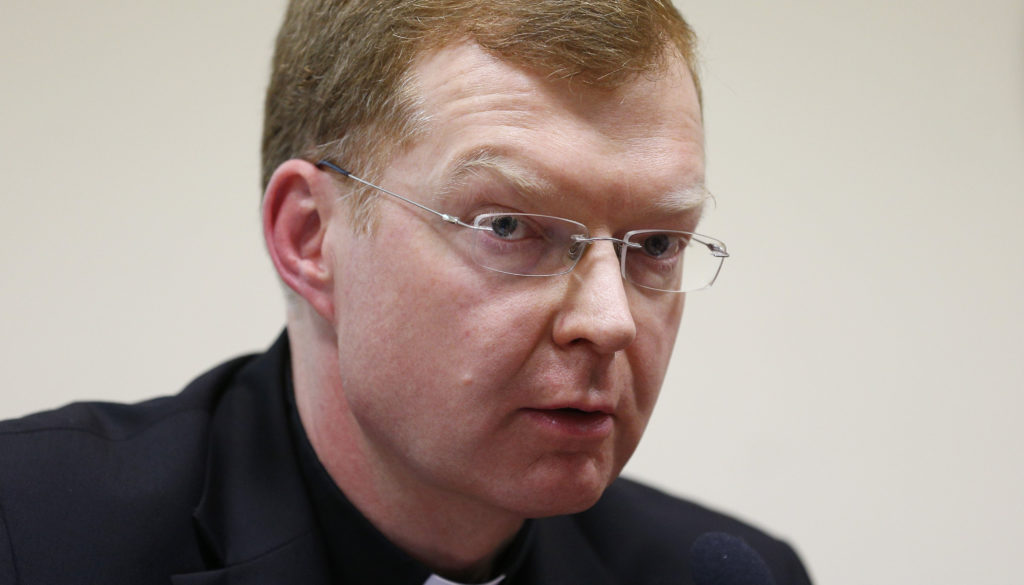The father Hans Zollner, a Jesuit, has chaired the Center for Child Protection at the Institute of Psychology of the Pontifical Gregorian University since 2015, and since the previous year has been a member of the Pontifical Commission for the Protection of Minors. Omnes has interviewed him in connection with the release of the "McCarrick Report".He asked him to give his opinion on the matter, also in view of his many years of experience in the field of abuse prevention in the Church.
Q- Father Zollner, we know how much work has been done in recent years to combat the sad phenomenon of abuse in the Church, work that has seen you as a major player. How do you understand the recent McCarrick report and how has the Church presented it?
I would say first of all that it is a signal in the direction of clear and crisp transparency, with truly exhaustive documentation that shows the whole world how much work has gone into the drafting of this report and how clearly the data is presented. Therefore, I consider it to be truly exemplary and believe that it also represents the fulfillment of the promise made at the 2019 Summit with the Presidents of the Bishops' Conferences around the world, on the definitive awareness of the phenomenon. I cannot imagine that it will be the last, although it should be noted that in some local Churches such reports have already been transmitted for some time. The latest in order of time has reached us, for example, from the Diocese of Aachen, which has also conveyed a very positive impression.
P- In your opinion, considering all the experience you have had as President of the Juvenile Protection Center, what does this additional sad story teach us?
It teaches us that the control phase must be taken seriously. And that it can happen that a bishop does not always tell the whole truth, for various reasons: cultural, environmental, etc. Therefore, we must aspire to have a system of accountability that works, and we must aspire to have a system that works.The bishops must be accountable to whom and how they can be sanctioned if they do not communicate the necessary information in the various processes, thus harming their mission for the People of God.

P- The report highlights some personal responsibilities that, on a superficial reading, could damage the pontificates in which they have occurred. How should these events be placed in the correct and honest perspective?
Obviously, much is said about the figure of St. John Paul II in this matter, given that practically so much has happened during his pontificate. First of all, it must be said that being a saint does not mean being sinless in life: as long as we live on this earth, we are all sinners. The 'McCarrick report', in any case, does not indicate precisely what John Paul II's personal responsibility was; it is not clear what happened, also because here's a McCarrick who lied through his teethThe accusations against McCarrick, the experience of communism that attacked the Church in Poland, and so on. After all, these are always processes that we see from our point of view and on the basis of the evaluations we arrive at today: that was not possible at the time, but it certainly does not reduce responsibility.
P- It seems to us that we are at a point of 'no return' compared to a transparency practice that can no longer be avoided from now on. Are more reports of this kind expected?
It should be noted that this is not the first report to be presented in this way: there have been others of a national, diocesan or religious nature. Certainly is the first published by the Holy See itselfThe question of the importance of the character and the relevance of the American Church is of great importance. If similar issues were to arise in relation to other characters of the same caliber, I can imagine that the same would be done. The Holy See is truly committed to thisand it does not do so lightly: they have obviously taken the necessary time to check everything thoroughly. Therefore, was exemplary both in execution and in the message that was sent..
P- After years of dealing with these issues, what is the assessment being made today?
In the last 3 or 4 years we have seen really profound changes, just think about the motu proprio As a loving mother of Pope Francis in 2016, the address to the participants of the "Child Dignity in the Digital World" Congress the following year, the Letter to the People of God in 2018, the summit with the bishops last year, which was followed by. laws that developed the measures we had all hoped forThe following are some of the key elements of this process: the initiation of the accountability process, the inclusion of vulnerable persons in sexual abuse complaints, the abolition of papal secrecy and the raising of the age of possession of child pornography from 14 to 18 years old. A practical vademecum has been published. So, in the last 4.5 years, great progress has been made.
It is not, of course, the end of the road, because this concerns very much the countries of the Western world, but the shock wave of change has not yet reached the other continents. Many in the Church still struggle to understand that we are not talking about an issue that will pass quickly or a stain that can be easily wiped away: we are talking about a call from the Lord to our mission and what he really wants from us. This gives me, on the one hand, sadness, because I still see a lot of resistance to understanding the real challengeand, on the other hand, hope, because I am convinced that the Lord will insist onWe will continue to take steps!








